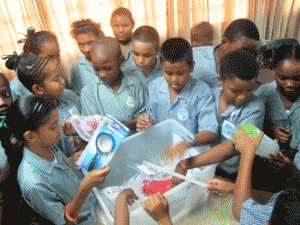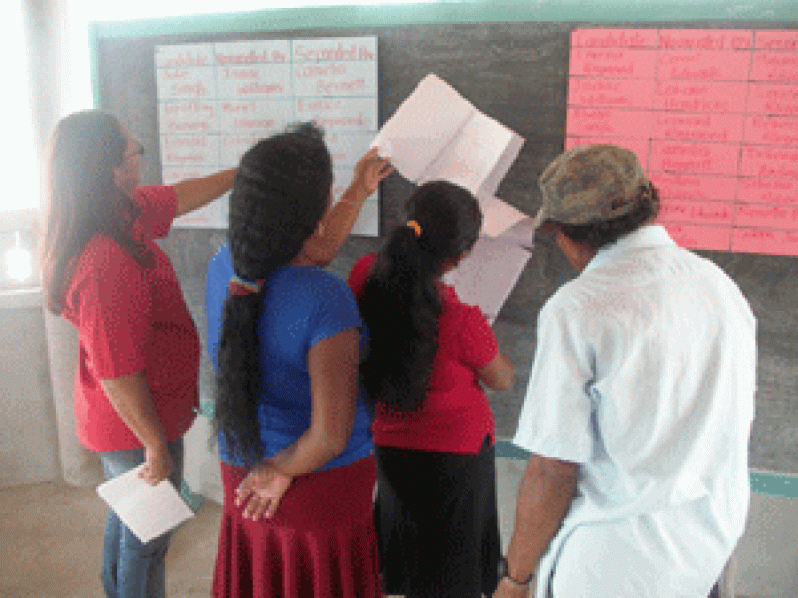IN MARCH, the National Centre for Educational Resource Development (NCERD), received support from the United Nations Educational Scientific and Cultural Organisation (UNESCO) to launch the Inquiry Based Science Education Programme aimed at generating interest among Fifth and Sixth Grade primary school students in the sciences.
 Guyana is the second country after Chile to introduce this form of learning in the classroom.
Guyana is the second country after Chile to introduce this form of learning in the classroom.
The schools included in the first phase of the pilot are Arapaima Primary in Region 9, CV Nunes Primary, Winfer Gardens, St. Margaret’s, Leonora Primary and Cornelia Ida Primary.
With additional support from Youth Challenge Guyana and Exxon Mobil, four more schools were added to the list of pilot schools; these are All Saints, BV Quamina, Skeldon and Peter’s Hall primary schools. Each school is being provided with science kits containing items that can facilitate experiments and other scientific tests, shifting the way science is viewed.
Acting Chief Education Officer Primary, Marcel Hutson, emphasised that the inclusion of four additional schools tells that the other schools involved are doing well. He stated that from the onset, it cannot be business as usual in the school system, if the expected results are to be had; as such, it is anticipated that this programme will aid development and change.
The aim of Inquiry Based Science Education is to stimulate curiosity, encourage critical and creative thinking, and create the foundation for scientific study at the secondary level. It is therefore important that at the primary level, science needs to be fun, since at this level students are guided into their careers.
Head of NCERD, Roopnaraine Tiwari, noted that the inquiry approach provides students with opportunities to learn by manipulating, investigating and using their analytical skills instead of the usual chalk and talk.
He recognised that throughout time, mankind has been using this type of learning so as to become more aware of their surroundings. There is empirical evidence in support of the use of the inquiry based approach in the teaching of science and other subject areas.
Tiwari emphasised this approach will seek to invigorate teachers in the pilot schools to provide environments where students can learn meaningfully. He added that while the pilot phase accommodates a small number of schools, it is hoped that as more schools are included, the usefulness of the project will be brought to the fore.
Executive Director – Youth Challenge Guyana, Demetri Nicholson, highlighted that this is an era of science, and as such the project seeks to ensure that children aspire to become leaders in the science field.
He noted that the science kits provided give students and teachers the opportunity to take things apart while learning, instead of resorting to the chalk and talk option. Teachers will also be able to meet and share their experiences and conduct peer reviews.



.jpg)








